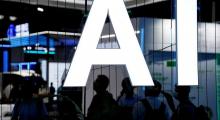Human creation is the foundational principle of copyright

Human creation is the foundational principle of copyright
A recent ruling by a U.S. court in Washington, D.C. stated that artworks generated by artificial intelligence devoid of human involvement are not eligible for copyright protection under American law. U.S. District Judge Beryl Howell reaffirmed this stance in a decision in August of 2023, echoing the Copyright Office's prior denial of a copyright application from computer scientist Stephen Thaler for a creation of his AI system, DABUS. DABUS, which stands for Device for the Autonomous Bootstrapping of Unified Sentience, had previously been at the center of unsuccessful patent applications in the U.S. by Thaler. Additionally, he sought patents for DABUS-generated creations in countries such as the UK, South Africa, Australia, and Saudi Arabia, achieving mixed outcomes.
Responding to the court's decision, Ryan Abbott, Thaler's legal representative, voiced strong disagreement and indicated intentions to appeal. Conversely, the Copyright Office supported the court's ruling, expressing their belief that the decision was appropriate. The rapid expansion of generative AI technologies has introduced unique challenges regarding intellectual property rights. A case in point is the Copyright Office's refusal to grant copyright for artworks made using the AI system, Midjourney. The artist contended that the AI tool was an integral part of their artistic approach. Additionally, there have been a series of legal suits concerning the unauthorized use of copyrighted content to train AI systems. Judge Howell acknowledged the evolving landscape of copyright law as artists increasingly adopt AI in their practice, leading to complex legal dilemmas. However, she emphasized the straightforwardness of this particular case.
In 2018, Thaler sought copyright for "A Recent Entrance to Paradise," a visual artwork purportedly crafted by DABUS with zero human intervention. This application was turned down by the Copyright Office, asserting that copyrightable works necessitate human creators. Contesting this in a federal court, Thaler posited that human creation isn't an explicit legal prerequisite and that granting copyright to AI aligns with the U.S. Constitution's intent to advance science and the arts. Judge Howell, siding with the Copyright Office, declared that human creation is the foundational principle of copyright, deeply rooted in longstanding interpretations.
Für weitere Rechtsauskünfte steht Ihnen Herr Dr Kerres unter Tel +43 (1) 516 60 oder office@kerres.at zur Verfügung.
Sämtliche Informationen werden ausschließlich als öffentlicher Service zur Verfügung gestellt und begründen kein Mandanten- oder Beratungsverhältnis. Sie stellen ein Thema vor, ohne den Anspruch auf Vollständigkeit zu erheben und ersetzen nicht die individuelle, fachspezifische anwaltliche Beratung. Wenn Sie eine individuelle, fachspezifische anwaltliche Beratung erhalten wollen, kontaktieren Sie bitte Ihren Ansprechpartner bei KERRES I PARTNERS. Jegliche Haftung aufgrund der zur Verfügung gestellten Information ist explizit ausgeschlossen.

